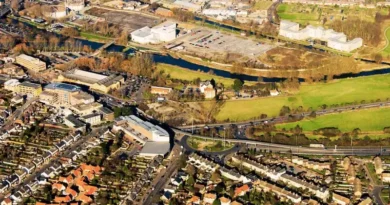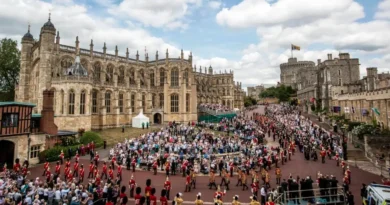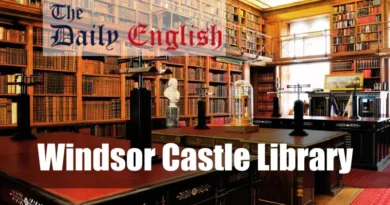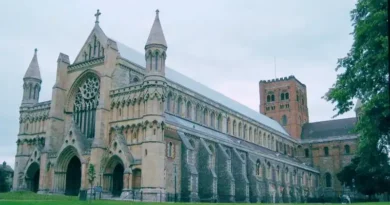Muslim Schools and Islamic Education Near Windsor Castle
In the vicinity of Windsor Castle, Muslim families seeking Islamic education have several options. The Medina Islamic Educational and Cultural Centre at 29 Shirley Avenue in Windsor offers Quran classes for youth on weekdays, providing foundational Islamic teachings.
Additionally, the Windsor Islamic Centre, situated at the same address, serves as a hub for the local Muslim community, offering various religious services and educational programmes. For those willing to travel a short distance, the Slough Weekend Islamic School (SWIS) operates from Ditton Park Academy in Slough, approximately 7 miles from Windsor. SWIS provides weekend classes for children aged 6 to 14, focusing on traditional Islamic knowledge in a structured environment. These institutions collectively cater to the Islamic educational needs of Windsor and its surrounding communities.
Takeaways
| Key Points |
|---|
| Muslim families near Windsor Castle have several options for Islamic education, including the Medina Islamic Educational and Cultural Centre, the Windsor Islamic Centre, and institutions in nearby towns. |
| The Medina Centre, located at 29 Shirley Avenue, Windsor, provides weekday Quran classes for youth and serves as a hub for religious services and cultural engagement, with daily prayers and community events. |
| The Windsor Islamic Centre, also at the same address, offers similar services, including daily prayers and educational programmes, with a focus on fostering social cohesion within the diverse local community. |
| For those willing to travel, the Slough Weekend Islamic School (SWIS) at Ditton Park Academy provides structured Islamic education for children aged 6 to 14 every Saturday, incorporating traditional teachings with modern learning methods. |
| Further afield, the Al-Tawheed Islamic Education Centre in Maidenhead offers Quran classes, Tajweed, Tafsir, and Arabic language courses, while the Muslim Education Centre and Welfare Trust (MECAWT) in High Wycombe provides Quranic education, community support, and Islamic counselling services. |
| Additionally, Al Ihsan Madrassa at The Sheikh Nazim Sufi Centre in London focuses on Quranic studies, Arabic, and Islamic teachings, alongside hosting weekly Zikr gatherings, making it a significant centre for spiritual and educational enrichment. |
Introduction
Windsor is a town renowned for its rich cultural and religious diversity, reflecting a vibrant mix of traditions and beliefs. Educational institutions play a pivotal role in fostering community cohesion by providing inclusive environments where individuals from varied backgrounds can engage, learn, and grow together. Through collaborative learning and shared experiences, these institutions help bridge cultural divides, promote mutual understanding, and cultivate a harmonious society.
Detailed Profiles of Institutions

In the vicinity of Windsor Castle, several institutions cater to the Islamic educational and spiritual needs of the local Muslim community. These centres offer a range of services, from daily prayers and Quranic studies to comprehensive educational programmes for children and adults.
1. Medina Islamic Educational and Cultural Centre
The Medina Islamic Educational and Cultural Centre, located at 29 Shirley Avenue, Windsor SL4 5LH, serves as a cornerstone for the local Muslim community. Established as the first mosque in Windsor, the centre offers a range of services and programmes to cater to the spiritual and educational needs of its attendees.
Prayer Services
The centre provides facilities for daily prayers, accommodating both male and female worshippers. The prayer schedule is regularly updated to align with the timings of the five daily prayers. For instance, on February 19, 2025, the Zuhr prayer begins at 12:19 pm, with Iqamah at 1:00 pm. Worshippers are encouraged to consult the centre’s official website for the most current prayer times.
Educational Programmes
Emphasising the importance of Quranic education, the centre offers weekday Quran classes for youth from Monday to Friday. These classes aim to foster a deep understanding of Islamic teachings among the community’s younger members. For further details, interested individuals are encouraged to contact the centre directly.
Community Engagement
Beyond its religious and educational services, the Medina Islamic Educational and Cultural Centre actively promotes cultural awareness and social cohesion within Windsor’s diverse population. The centre organises various community programmes and events throughout the year to bridge cultural gaps and foster mutual understanding among different communities.
Contact Information
For more information or specific inquiries, individuals can contact Hafiz Sahib at 07446 139861 between 9:00 am and 6:00 pm. Additional details about the centre’s services, upcoming events, and prayer schedules can be found on their official website, medinaicwindsor.co.uk.
The Medina Islamic Educational and Cultural Centre remains dedicated to serving the Muslim community’s spiritual, educational, and social needs in Windsor and its surrounding areas.
2. Windsor Islamic Centre
The Windsor Islamic Centre, also known as Masjid Al Amal, is located at 29 Shirley Avenue, Windsor SL4 5LH. This centre serves as a vital hub for the local Muslim community, offering various religious, educational, and community services.
Prayer Services
The centre provides facilities for daily prayers, welcoming both male and female worshippers. Prayer times are regularly updated to reflect the five daily prayers. For instance, on February 19, 2025, the Zuhr prayer begins at 12:19 pm, with Iqamah at 1:00 pm. Worshippers are encouraged to consult the centre’s official website for the most current prayer times.
Educational Programmes
Emphasising the importance of Islamic education, the Windsor Islamic Centre offers Quran classes aimed at the community’s youth. These classes are held on weekdays (Monday to Friday) and are designed to deepen the understanding of Islamic teachings among young attendees. For further details, individuals are encouraged to contact the centre directly.
Community Engagement
Beyond its religious and educational services, the centre actively promotes social cohesion and cultural awareness within Windsor’s diverse population. The centre organises various community events and programmes throughout the year, fostering unity and spiritual growth among its members.
Contact Information
Individuals can contact Hafiz Saqib at 07729 216186 for more information or specific inquiries. Additional details about the centre’s services, upcoming events, and prayer schedules can be found on their official website, thewic.co.uk.
The Windsor Islamic Centre remains dedicated to serving the Muslim community’s spiritual, educational, and social needs in Windsor and its surrounding areas.
3. Slough Weekend Islamic School (SWIS)
Approximately 7 miles from Windsor, the Slough Weekend Islamic School (SWIS) operates from Ditton Park Academy, located at Kings Reach, Slough, SL3 7UX. Established in March 2006 by local educationalists and professionals, SWIS aims to provide Muslim children in Slough and surrounding areas with a structured and engaging insight into traditional Islamic knowledge.
Educational Programmes
SWIS offers weekend classes for children aged 6 to 14, held every Saturday morning from 10:00 am to 12:30 pm. The comprehensive, age-focused curriculum is designed to impart essential Islamic teachings, emphasising respect for individuals, the environment, and the broader community. The school’s objectives include helping children develop confidence in their identity as British Muslims and instilling qualities expected in a culturally rich, diverse society.
Teaching Staff and Environment
The school is managed by a dedicated team of over 70 volunteers from diverse professional backgrounds, including teaching, IT, project management, marketing, finance, scouting, entrepreneurship, and community leadership. All staff members are DBS-checked to ensure a safe learning environment. The teaching approach combines traditional Islamic knowledge with contemporary methods, fostering a positive and enjoyable learning atmosphere.
Contact Information
For more information or specific inquiries, individuals can contact SWIS at 07340 337 956 or via email at info@swis.org.uk. Additional details about the school’s programmes, registration process, and upcoming events can be found on their official website, swis.org.uk.
SWIS is committed to delivering quality Islamic education, ensuring that children are well-versed in Islamic teachings while being confident and active members of British society.

4. Al-Tawheed Islamic Education Centre
Located at 22 Cookham Road, Maidenhead, Berkshire, SL6 8AJ—approximately 8 miles from Windsor—the Al-Tawheed Islamic Education Centre serves as a vital hub for the local Muslim community. Established in February 2009, the centre has grown to accommodate the needs of over 500 individuals in Maidenhead throughout the year.
Educational Programmes
The centre offers a range of educational initiatives aimed at providing a comprehensive understanding of Islam:
- Qur’an Classes: Weekly sessions for children after school, focusing on Qur’anic studies.
- Tajweed and Tafsir Classes: Regular classes dedicated to the correct pronunciation and interpretation of the Qur’an.
- Arabic Language Courses: Designed to teach the Arabic language to various age groups.
These programmes cater to children of all ages, as well as adults, including sisters and older community members.
Prayer Services
The Al-Tawheed Islamic Education Centre provides facilities for daily prayers, welcoming both male and female worshippers. Prayer times are regularly updated to reflect the five daily prayers. Worshippers are encouraged to consult the centre’s official website for the most current prayer times.
Community Engagement
Beyond its educational and religious services, the centre is actively involved in community support programmes to foster unity and assist those in need within the local area.
Contact Information
For further inquiries:
- Imam: 07883 889759
- Secretary: 07890 557710
Additional details about the centre’s services, upcoming events, and prayer schedules can be found on their official website, TIECM.ORG.
The Al-Tawheed Islamic Education Centre remains committed to serving the Muslim community’s spiritual, educational, and social needs in Maidenhead and its surrounding areas.
5. Muslim Education Centre and Welfare Trust (MECAWT)
Located at 3 & 4 The Parade, Totteridge Drive, High Wycombe, HP13 6UH—approximately 20 miles from Windsor—the Muslim Education Centre and Welfare Trust (MECAWT) has been serving the local community since its establishment in 1999. The centre is dedicated to providing authentic Islamic education, counselling, and various community services.
Educational Programmes
MECAWT offers a broad and balanced curriculum tailored to different age groups, aiming to help students recite the Qur’an fluently with Tajweed, understand Islamic tenets, and become confident, practising Muslims. Parental involvement is encouraged to maximise each child’s potential.
Prayer Services
The centre provides facilities for the five daily prayers, welcoming both male and female worshippers. Prayer times are regularly updated to reflect the daily schedule. For instance, on February 19 2025, the Dhuhr prayer begins at 12:22 pm, with Iqāmah at 1:00 pm. Worshippers are encouraged to consult the centre’s official website for the most current prayer times.
Community Engagement
Beyond its educational and religious services, MECAWT is actively involved in community support programmes to foster unity and assist those in need within the local area. The centre offers Islamic guidance, literature, advice, and counselling and operates a bookshop.
Contact Information
For further inquiries:
- Telephone: 01494 522786
- Email: info@mecawt.co.uk
Additional details about the centre’s services, upcoming events, and prayer schedules can be found on their official website, MECAWT.CO.UK.
MECAWT remains committed to serving the Muslim community’s spiritual, educational, and social needs in High Wycombe and its surrounding areas.
6. Al Ihsan Madrassa – Castle of Imaan
Located within The Sheikh Nazim Sufi Centre at 277 St. Ann’s Road, London, N15 5RG, Al Ihsan Madrassa offers a range of educational programmes for both children and adults. The madrassa is dedicated to imparting traditional Islamic knowledge in a tolerant and engaging environment.
Educational Programmes
Al Ihsan Madrassa provides Qur’an reading, recitation, Tajweed, Hifz (memorisation), Islamic studies, and Arabic language classes. These programmes are designed to nurture a deep understanding of the faith among students, promoting both spiritual and intellectual growth.
Community Engagement
The Sheikh Nazim Sufi Centre serves as the European headquarters for Maulana Shaykh Muhammad, the successor of Maulana Shaykh Nazim. It is a vibrant place of worship, meditation, education, and fellowship. The centre hosts weekly Zikr gatherings open to all, fostering a sense of community and spiritual connection.
Contact Information
For class schedules and additional information:
- Telephone: 07787 642007
- Website: castleofimaan.org
Al Ihsan Madrassa at The Sheikh Nazim Sufi Centre remains committed to providing quality Islamic education and fostering a supportive community for all attendees.

Understanding Islamic Education
Islamic education is a comprehensive system aimed at nurturing morally upright, intellectually informed, and spiritually connected individuals. It seeks to harmoniously integrate religious teachings with secular knowledge, fostering a balanced development in adherents.
Definition and Objectives of Islamic Education
At its core, Islamic education is the process of imparting knowledge (‘ilm) that encompasses both the spiritual and worldly aspects of life. The primary objectives include:
- Spiritual Development: Cultivating a deep, personal relationship with Allah, encouraging practices that enhance faith and piety.
- Moral and Ethical Training: Instilling virtues such as honesty, compassion, and justice, guiding individuals to lead lives aligned with Islamic moral principles.
- Intellectual Growth: Encouraging the pursuit of knowledge across various disciplines, promoting critical thinking and understanding of the world.
- Social Responsibility: Preparing individuals to contribute positively to society, upholding social justice, and engaging in community service.
Historical Development and Significance in Muslim Societies
Islam has placed a high premium on education since its inception, fostering a rich intellectual tradition. The Qur’an, Islam’s most revered text, contains over 800 references to knowledge, underscoring its importance. Historically, education in Muslim societies was not limited to religious instruction but encompassed a wide array of subjects.
Early educational institutions, such as the kuttāb, focused on teaching young children Qur’anic studies and basic literacy. As learners advanced, they could attend madrasas, which offered instruction in both religious sciences and subjects like philosophy, mathematics, and medicine. This holistic approach facilitated the flourishing of various sciences and arts, significantly contributing to global knowledge.
Integration of Religious and Secular Studies in Islamic Curricula
A distinctive feature of Islamic education is the seamless integration of religious and secular studies. This approach is rooted in the concept of tawḥīd (the oneness of God), which implies that all knowledge is interconnected and originates from the Divine.
In practice, this integration manifests as follows:
- Curriculum Design: Educational programmes incorporate religious studies—such as Qur’anic exegesis, Hadith, and Fiqh—alongside subjects like natural sciences, humanities, and arts. This blend ensures that students receive a well-rounded education.
- Ethical Contextualisation: Secular subjects are taught within an Islamic ethical framework, helping students understand and apply moral considerations in various fields, be it science, business, or technology.
- Application of Knowledge: Learners are encouraged to utilise their knowledge for the betterment of society, aligning professional pursuits with the broader objectives of Sharia (Islamic law), which aims to promote welfare and prevent harm.
This integrated educational model not only preserves religious teachings but also equips individuals to navigate and contribute to the modern world effectively.
The Role of Muslim Schools and Institutions
Muslim schools and educational centres play a pivotal role in nurturing both the academic and moral development of students while steadfastly preserving religious identity and cultural values.
Purpose and Functions of Muslim Schools and Educational Centres
The primary purpose of Muslim educational institutions is to provide a holistic education that seamlessly integrates religious teachings with secular subjects. This dual approach ensures that students are well-versed in their faith while being adequately prepared to navigate contemporary societal challenges. Key functions include:
- Religious Instruction: Offering an in-depth understanding of Islamic principles, Qur’anic studies, Hadith, and Fiqh, thereby fostering a strong spiritual foundation.
- Academic Education: Delivering comprehensive instruction in subjects such as mathematics, science, literature, and the arts, ensuring students achieve academic excellence.
- Moral and Ethical Development: Emphasising character building and inculcating virtues like honesty, compassion, and social responsibility.
- Community Engagement: Encouraging participation in community service and fostering a sense of social responsibility.
Contribution to Preserving Religious Identity and Cultural Values
In multicultural societies, Muslim schools serve as religious and cultural heritage custodians. They provide an environment where Islamic values and traditions are not only taught but also lived experiences. Contributions include:
- Cultural Continuity: Celebrating Islamic festivals, traditions, and the Arabic language, thereby ensuring the transmission of cultural practices to younger generations.
- Safe Learning Environment: Creating spaces where students can express their religious identity without fear of discrimination, fostering confidence and self-esteem.
- Interfaith Understanding: Promoting respect and understanding of other faiths, which is essential in today’s diverse societies.
Support for Academic Excellence and Moral Development
Muslim educational institutions are committed to pursuing academic excellence, recognising that intellectual growth complements spiritual and moral development. Strategies include:
- Integrated Curriculum: Blending religious studies with secular subjects to provide a balanced education that prepares students for various professional fields.
- Ethical Framework: Embedding moral teachings within the curriculum to guide students in making ethical decisions in their personal and professional lives.
- Extracurricular Activities: Offering programmes that develop leadership skills, teamwork, and a sense of community service.
By fulfilling these roles, Muslim schools and educational centres not only preserve their communities’ religious and cultural identity but also contribute positively to the broader society by developing well-rounded, morally grounded, and academically proficient individuals.
The Necessity of Separate Islamic Educational Institutions in Windsor
Several key factors drive the establishment of Islamic educational institutions in Windsor:
- Addressing Specific Religious and Cultural Needs: These institutions offer tailored programmes that respect and incorporate Islamic beliefs and cultural practices, which mainstream schools may not address.
- Providing an Environment Conducive to Faith-Based Learning: By fostering an atmosphere aligned with Islamic values, these schools enable students to practice their faith openly and comfortably, reinforcing their religious identity.
- Complementing Mainstream Education with Islamic Teachings: While delivering standard academic curricula, these institutions integrate Islamic studies, allowing students to achieve academic proficiency alongside religious education.
In summary, Muslim schools and Islamic educational institutions near Windsor Castle are essential in supporting the Muslim community’s spiritual, cultural, and academic development, ensuring that students receive a balanced education rooted in their faith and cultural heritage.
Challenges and Opportunities
Muslim schools in the UK encounter a range of challenges and opportunities as they strive to provide quality education while preserving religious and cultural identities.
Navigating Integration within the Broader Educational Framework
Balancing faith-based curricula with national educational standards requires careful planning. Muslim schools must ensure that religious teachings align with the UK’s educational requirements, fostering students’ spiritual and academic growth. This integration demands resources and expertise to develop comprehensive programmes that meet both sets of standards.
Overcoming Misconceptions and Fostering Inclusivity
Muslim schools often face societal misconceptions and instances of Islamophobia, which can lead to marginalisation. Addressing these challenges involves proactive community engagement and education to dispel stereotypes. Creating inclusive environments where diversity is celebrated benefits Muslim students and enriches the broader educational landscape. Initiatives promoting understanding of Islamic culture and values can bridge gaps and foster mutual respect.
Opportunities for Interfaith Dialogue and Community Partnerships
Muslim schools are uniquely positioned to serve as hubs for interfaith dialogue and community collaboration. By partnering with other educational institutions and community organisations, they can facilitate programmes that promote mutual understanding and social cohesion. These partnerships can lead to shared projects, cultural exchanges, and joint community service initiatives, enriching the educational experience for all students involved. Engaging in such collaborative efforts not only enhances the school’s role in the community but also prepares students to navigate a diverse society with empathy and respect.
In summary, Muslim schools in the UK face distinct challenges in integrating religious and secular education and combating misconceptions. However, they also have significant opportunities to promote inclusivity and foster interfaith understanding through active community engagement and partnerships.









